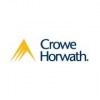
i
BDO RISE Private Limited
Filter interviews by
BDO RISE Private Limited Salesforce Developer Interview Questions and Answers
Be the first one to contribute and help others!
Interview questions from similar companies

Salesforce Developer Interview Questions & Answers
EY Global Delivery Services ( EY GDS)posted on 13 May 2024
(3 Questions)
- Q1. What is the by default sharing method followed by apex code
- Ans.
Apex code follows the by default sharing method of 'with sharing'.
By default, Apex code enforces sharing rules that apply to the current user.
This means that the code runs in the user's context and respects their sharing settings.
Developers can also use 'without sharing' to bypass sharing rules if necessary.
- Q2. How to bypass sharing rules via apex class
- Ans.
Bypassing sharing rules via apex class involves using 'without sharing' keyword in the class definition.
Use 'without sharing' keyword in the class definition to bypass sharing rules.
This keyword allows the apex class to ignore sharing rules and access all data regardless of the user's permissions.
- Q3. How to convert Json data into string in LWC Can we do callouts from LWC? What is the precautions need to take care Before writing queaueable apex class? Have you worked on platform events? How to communi...
- Ans.
To convert Json data into string in LWC, use JSON.stringify() method.
Use JSON.stringify() method to convert Json data into string in LWC.
Yes, callouts can be made from LWC using imperative Apex.
Precautions before writing queueable Apex class include governor limits, bulkification, and error handling.
Platform events can be used for inter-component communication in LWC.
To communicate unrelated LWC components, use Lightni
Skills evaluated in this interview

Aptitude topic was as generally appears in other placement tests , coding questions(not that much hard )
(1 Question)
- Q1. Asked for the introduction , then asked questions from the resume . Also the OOPS concept and interface
Interview Preparation Tips

Salesforce Developer Interview Questions & Answers
EY Global Delivery Services ( EY GDS)posted on 10 May 2024
I applied via LinkedIn and was interviewed in Apr 2024. There was 1 interview round.
(3 Questions)
- Q1. What are types of flows
- Ans.
Types of flows include autolaunched flows, screen flows, and scheduled flows.
Autolaunched flows are triggered by a process or record change
Screen flows guide users through a series of screens to collect information
Scheduled flows are triggered based on a schedule or time-based event
- Q2. What are types of table in report
- Ans.
Types of tables in reports include summary tables, matrix tables, and joined tables.
Summary tables provide a high-level overview of data, often with subtotals and grand totals.
Matrix tables allow for data to be grouped and summarized in rows and columns.
Joined tables combine data from multiple sources or objects in a single report.
- Q3. What is skinny table
- Ans.
Skinny table is a custom table in Salesforce that contains a subset of fields from standard and custom objects for performance optimization.
Skinny table is used to improve query performance by reducing the number of joins needed.
It contains frequently accessed fields from standard and custom objects.
Data in skinny tables is automatically synchronized with the source objects.
Skinny tables are read-only and cannot be dir
Skills evaluated in this interview

Salesforce Developer Interview Questions & Answers
EY Global Delivery Services ( EY GDS)posted on 1 Aug 2024
(3 Questions)
- Q1. Integration related
- Q2. Trigger related
- Q3. LWC use case related ques.

Salesforce Administrator Interview Questions & Answers
EY Global Delivery Services ( EY GDS)posted on 27 Nov 2024
(2 Questions)
- Q1. How will you create user debug in production
- Q2. How can we schedule an batch class
Interview Preparation Tips
Sangeet Shekar Manager At Ey is very rude person . He doesn't know how to speak to people .People like should not be working

Software Developer Interview Questions & Answers
EY Global Delivery Services ( EY GDS)posted on 25 Jan 2025
(1 Question)
- Q1. Java basics and springboot

Software Developer Interview Questions & Answers
EY Global Delivery Services ( EY GDS)posted on 8 Jun 2024
I applied via Job Portal and was interviewed in May 2024. There was 1 interview round.
(4 Questions)
- Q1. Where did you use Service Bus in your application?
- Ans.
I used Service Bus to implement asynchronous communication between microservices in my application.
Implemented message queuing for decoupling services
Used Service Bus to handle communication between different components
Leveraged Service Bus for reliable message delivery
- Q2. SOLID Principles and OOPS
- Q3. How is Authorization implemented at your organization?
- Ans.
Authorization at our organization is implemented using role-based access control (RBAC) and OAuth.
Role-based access control (RBAC) is used to assign permissions to roles, which are then assigned to users based on their job responsibilities.
OAuth is used for authentication and authorization, allowing users to access resources based on their permissions and roles.
Access control lists (ACLs) are also used to define specif
- Q4. Why prefer Entity Framework Core over Entity Framework?
- Ans.
Entity Framework Core is preferred for its improved performance, cross-platform support, and new features.
Entity Framework Core is faster and more lightweight compared to Entity Framework.
Entity Framework Core supports cross-platform development, allowing for easier deployment on different operating systems.
Entity Framework Core introduces new features like Global Query Filters, Owned Entities, and Value Conversions fo
Skills evaluated in this interview

Salesforce Consultant Interview Questions & Answers
EY Global Delivery Services ( EY GDS)posted on 26 May 2024
I applied via Referral and was interviewed in Apr 2024. There was 1 interview round.
(4 Questions)
- Q1. Sales Cloud , Service cloud , LWC
- Q2. Write code for Parent to child trigger.
- Ans.
Code for Parent to child trigger in Salesforce
Create a trigger on the parent object
Query the child records related to the parent
Perform necessary operations on the child records
- Q3. Experience cloud pages , LWC life cycle , Integration Setups
- Q4. No question asked on Flows ,Process Builder .
Skills evaluated in this interview

Salesforce Developer Interview Questions & Answers
EY Global Delivery Services ( EY GDS)posted on 13 May 2024
(3 Questions)
- Q1. What is the by default sharing method followed by apex code
- Ans.
Apex code follows the by default sharing method of 'with sharing'.
By default, Apex code enforces sharing rules that apply to the current user.
This means that the code runs in the user's context and respects their sharing settings.
Developers can also use 'without sharing' to bypass sharing rules if necessary.
- Q2. How to bypass sharing rules via apex class
- Ans.
Bypassing sharing rules via apex class involves using 'without sharing' keyword in the class definition.
Use 'without sharing' keyword in the class definition to bypass sharing rules.
This keyword allows the apex class to ignore sharing rules and access all data regardless of the user's permissions.
- Q3. How to convert Json data into string in LWC Can we do callouts from LWC? What is the precautions need to take care Before writing queaueable apex class? Have you worked on platform events? How to communi...
- Ans.
To convert Json data into string in LWC, use JSON.stringify() method.
Use JSON.stringify() method to convert Json data into string in LWC.
Yes, callouts can be made from LWC using imperative Apex.
Precautions before writing queueable Apex class include governor limits, bulkification, and error handling.
Platform events can be used for inter-component communication in LWC.
To communicate unrelated LWC components, use Lightni
Skills evaluated in this interview

Salesforce Developer Interview Questions & Answers
EY Global Delivery Services ( EY GDS)posted on 10 May 2024
I applied via LinkedIn and was interviewed in Apr 2024. There was 1 interview round.
(3 Questions)
- Q1. What are types of flows
- Ans.
Types of flows include autolaunched flows, screen flows, and scheduled flows.
Autolaunched flows are triggered by a process or record change
Screen flows guide users through a series of screens to collect information
Scheduled flows are triggered based on a schedule or time-based event
- Q2. What are types of table in report
- Ans.
Types of tables in reports include summary tables, matrix tables, and joined tables.
Summary tables provide a high-level overview of data, often with subtotals and grand totals.
Matrix tables allow for data to be grouped and summarized in rows and columns.
Joined tables combine data from multiple sources or objects in a single report.
- Q3. What is skinny table
- Ans.
Skinny table is a custom table in Salesforce that contains a subset of fields from standard and custom objects for performance optimization.
Skinny table is used to improve query performance by reducing the number of joins needed.
It contains frequently accessed fields from standard and custom objects.
Data in skinny tables is automatically synchronized with the source objects.
Skinny tables are read-only and cannot be dir
Skills evaluated in this interview
BDO RISE Private Limited Interview FAQs
Tell us how to improve this page.
BDO RISE Private Limited Interviews By Designations
- BDO RISE Private Limited Associate Interview Questions
- BDO RISE Private Limited Senior Associate Interview Questions
- BDO RISE Private Limited Senior Audit Associate Interview Questions
- BDO RISE Private Limited Tax Associate Interview Questions
- BDO RISE Private Limited Apprenticeship Trainee Interview Questions
- BDO RISE Private Limited Associate Director Interview Questions
- BDO RISE Private Limited Audit Assistant Interview Questions
- BDO RISE Private Limited Audit Associate Interview Questions
- Show more
Interview Questions for Popular Designations
- Senior Salesforce Developer Interview Questions
- Salesforce Administrator Interview Questions
- Salesforce Consultant Interview Questions
- Application Development Team Lead Interview Questions
- Salesforce Developer Trainee Interview Questions
- Salesforce Administrator and Developer Interview Questions
- Salesforce Business Analyst Interview Questions
- Software Developer Interview Questions
- Show more
Salesforce Developer Interview Questions from Similar Companies
|
Associate
171
salaries
| ₹4.2 L/yr - ₹12.1 L/yr |
|
Senior Associate
166
salaries
| ₹6.3 L/yr - ₹21 L/yr |
|
Assistant Manager
159
salaries
| ₹9.5 L/yr - ₹26.5 L/yr |
|
Audit Associate
133
salaries
| ₹3 L/yr - ₹9.5 L/yr |
|
Senior Audit Associate
98
salaries
| ₹7 L/yr - ₹18.8 L/yr |

KPMG India

Deloitte

PwC

Ernst & Young
- Home >
- Interviews >
- BDO RISE Private Limited Interview Questions >
- BDO RISE Private Limited Salesforce Developer Interview Questions









